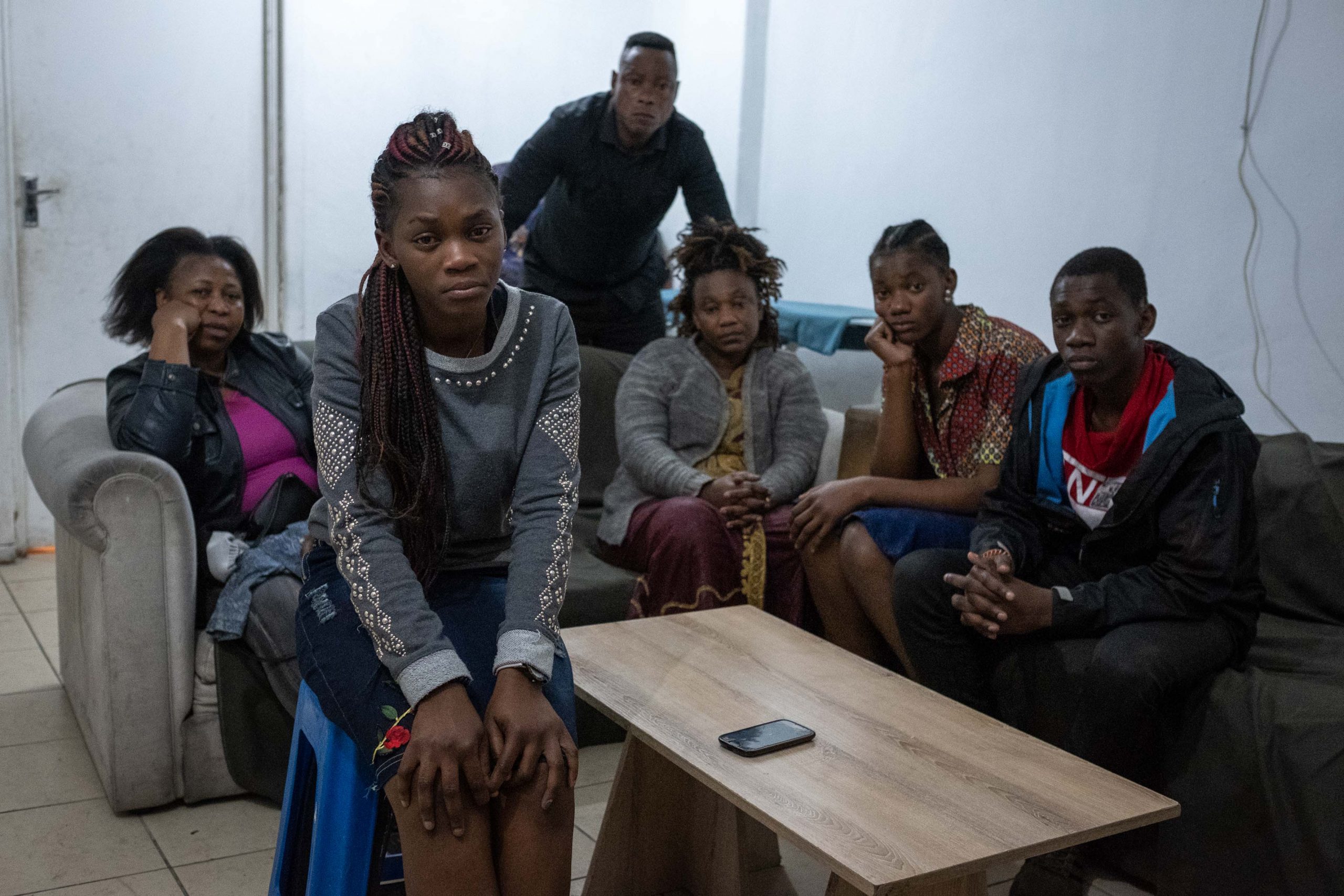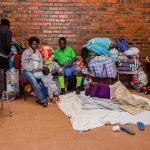Xenophobia in classrooms harms learners
Teenagers remain traumatised and fearful after xenophobia flared up in their schools and compromised their education.
Author:
6 November 2019

“They were always mocking me, telling me I am a foreigner, I can’t be a class monitor in their country,’’ says Donette Ngonefi, 20.
The young woman bends forward, her hand cradling her abdomen. The grade 10 learner was attacked for being Congolese. She was kicked and rendered helpless to defend herself against her peers at Salt River High School in Cape Town.
“I lay on the floor. Everybody, like half of the class, was beating me up. The only thing I was hiding was my face.”
Some pupils went and called her sister, Antaya Tabitha Ngonefi, 18, out of class. She attends the same school.
Donette says that after the incident, she wanted to go home and reported what had happened to the school’s principal. He told her she had to leave without her siblings, who were preparing for exams. At this point, Donette starts to cry, recalling the incident. “I explained that I can’t go home alone because of fear and I don’t feel well.” She remembers that the principal told her that if she didn’t want to go home alone, she should go and sit in the staff room.
Related article:
“When I went there, I was alone,” she remembers. “I was afraid. [The learners] were pointing fingers at me because I was sitting in the kitchen.” She decided to go to her next class. The teacher noticed something was wrong. “I was crying because I was really in pain,” says Donette.
She was in so much pain that she collapsed in her next class. A teacher called an ambulance. Her siblings, Antaya and her brother Bonheur, 15, were allowed to accompany her to the hospital, where she underwent a blood transfusion. She was hospitalised for nine days at two different hospitals.
Thinking about her future
The thought of schooling now makes the Ngonefi siblings fearful. Donette, who still cries when thinking about the trauma, says, “I don’t think I can go to any school from now. I am scared and traumatised it can come back to me again.”
Donette was unable to write her exams in September as she was in hospital at the time. Nearly a month after the attack, she has not recovered fully. She holds a hand over her stomach. She is unable to stand up straight and cannot walk easily. The pain is sometimes unbearable, she says.
The attack was the most brutal of a series of escalating incidents of xenophobia at the school. She remembers overhearing someone say, “We must shoot them one by one if they don’t want to go back to their country.” Donette admits that she did not take them seriously as they were teenagers. She had been so distressed by the discrimination that her mother, Thethe Nsemiuila Antaya, 45, had started to worry about her emotional wellbeing.
Related article:
Her mom says that Donette, who was the class monitor at the time, began to suffer from “night fever” after being at school. She had thought South Africa was safe before she and her family fled here, but this perception has now changed. “It gives me pain the way they are treating people,” she says.
Eventually, Donette followed her mother’s advice and stepped down as class monitor. There were two other students nominated to be class monitor, Janette*, who is also Congolese, and Unathi*, a South African learner. When Unathi was asked to take over, Donette says Unathi refused on the basis of the abuse she had endured. Janette agreed to become the new monitor, but as soon as the class found out about Janette’s origins they were angry. According to Donette, they said, “Why the next foreigner again?” The teacher was in the classroom when this happened.
Xenophobia leaving emotional scars
When the story broke, the Western Cape Education Department got involved. “The investigation into the incident was completed at the end of last term following various engagements with all the learners concerned,” says director of communications Bronagh Hammond. “An independent organisation was also brought in to advise on conflict management strategies and a restorative process.”
Given the evidence at hand, as well as the various engagements that have produced restorative and positive interaction, the school will not be taking disciplinary action, according to Hammond. It will continue, however, to engage with all the learners concerned and build a positive school community. Hammond says the school indicated that the students had displayed remorse and that it would inflame tensions all over again if such action were to be taken as the situation at the school had calmed down “about two days after the incident”.
The department has downplayed the xenophobic aspect of the attack. “The fight initially broke out after an argument regarding the recording of school attendance by the class monitor,” says Hammond.
The siblings want to transfer schools. Bonheur says: “I don’t feel the school is safe for us. You can get hurt anytime.” He, too, has been insulted and intimidated. It got so bad that, on one schoolday, the teacher asked the Ngonefi siblings to go home early for safety reasons.
Hammond says, “The learner and parents met with the WCED [department] last week and discussed possible transfer. We cannot provide time frames at this stage.” Antaya and Bonheur went back to the same school when it opened for the fourth academic term, but Donette is too afraid to return.
Salt River High School declined to comment.
The paranoia left behind
Thandolwethu*, 15, goes to school in Johannesburg. She has a South African father and a Malawian mother, but she hides her mother’s nationality for fear of being made an outsider at school. “They don’t know my mom is Malawian,” she says. “If they find out … they will not want to chill with me. They would say I have a disease or something.” The fact that other learners are not aware of her mother’s nationality makes her feel safe and welcome.
“[My mother says] I should tell them the truth,” she continues. “But I tell her I am scared because they won’t play with me anymore.” When xenophobic attacks started in Johannesburg in early September, the grade 9 pupil was unable to go to school for the last two weeks of the third term. Thandolwethu also feels unsafe going to school.
“I [could] not write some of the things [I missed while having to stay away from school] in the test,” she says. “And that affected me a lot.” She was unable to complete a maths paper because of how much work she had missed. Thandolwethu hopes to be a nuclear medicine technologist some day. But right now, she fears for her future.
Related article:
The xenophobic attacks meant low attendance at schools, so during the September exams, pupils at Thandolwethu’s school only wrote three papers. “We were told they will use the marks from the exercise books because there’s no other way to do it, because children are not coming to school,” she says.
Gauteng Department of Education spokesperson Steve Mabona says, “Lost contact time is not easily recovered. [But] during the xenophobic attacks, all affected schools established catch-up plans, which are closely monitored by the department. According to information at our disposal, all grade 12 preliminary exams were finalised without any glitches.”
But Thandolwethu worries that she will not do well on the three exam papers she was able to write because of missing so much work.
Her mother is aware that Thandolwethu is withholding her identity. She says, “To me it does not matter … I am from Malawi … She can’t say it in public. She has to hide. She has to tell lies.”
* Not their real names.



